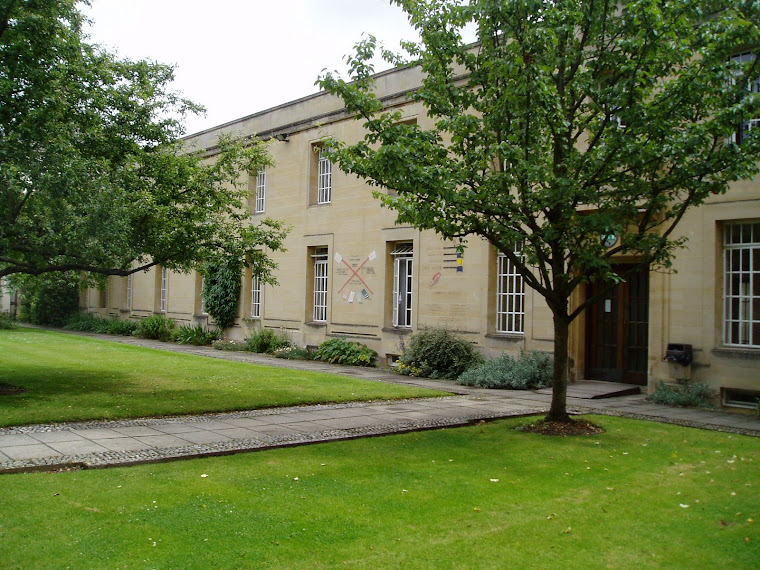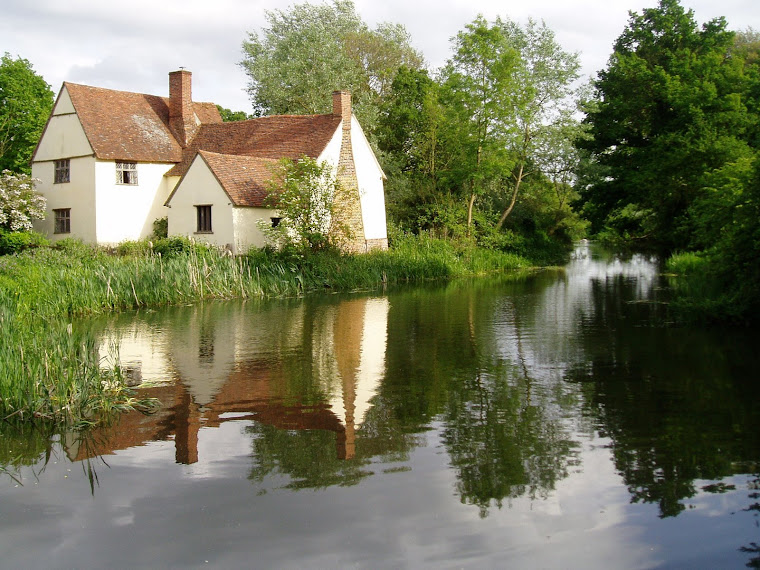Recently I bought a copy of Rob McAlpine's book Post-Charismatic at a Christian bookshop.
This book has arisen from the disappointment, disillusionment, and discord experienced by people who have left charismatic fellowships. Rob McAlpine highlights the repellent and controversial aspects of the charismatic movement, which include televangelism, the Prosperity teachings, and the Shepherding and Latter Rain movements. I enjoyed reading his historical analysis and insights.
He attempts to define post-charismatic: "the process of separating what is truly of the Holy Spirit and what is needless - and often harmful - baggage is the whole idea behind developing a post-charismatic understanding of how a supernatural God works supernaturally amongst and through the mystical gathering called the body".
The author clearly struggles with the term "post-charismatic". In his final section he writes that while it is certainly accurate as a description, "it lacks the ability to point to a way forward, which was the whole reason for writing in the first place".
Rob McAlpine is hoping that a post-charismatic understanding of how the Holy Spirit works will serve as a critique of 'charismania' excesses and questionable teachings, and will lead to a more mature and balanced understanding, expectation and functioning in the Spirit of Christ.
For some the way forward is "charismissional" which wishes to take the best of the missional approach to life/ministry and ground it in the vibrancy of the Spirit. For Rob McAlpine, 'missional' simply means that " we stop viewing ecclesiology and missiology as separate, and explore ways of being a missionary presence in our postmodern society".
I believe that Rob offers us his "post-charismatic but not post-Spirit" position but others are still emerging and will be manifest in various forms. His position is, therefore, one of many post-charismatic positions. Christians are talking about post-charismatic journeys and experiences. I expect to see more books and blogs on this subject. Some may arrive at some sort of revised charismatic or modified charismatic position. For others, the pain, the negative experiences and abuses will keep them away from any form of charismatic Christianity.
I pray for a truly biblical trinitarian charismatic Christianity that shows the amazing charisma of God. It has been refined and proved to be genuine; it has no weird or repellent elements as the dross has been burned away. It combines the gifts and fruits of the Spirit of God; it participates in the divine nature and escapes the corruption in the world caused by evil desires.
Saturday, 21 February 2009
Post-charismatic?
Thursday, 19 February 2009
Victims of Bishop Michael Reid
I have just read through a blog about the infamous Bishop Michael Reid called Victims of Bishop Michael Reid. Sadly there are victims of this man's ministry and there are lessons to be learned. I expected that this man would try to re-establish a ministry. You can read my previous comments about his decline and fall. He will now find it more difficult to raise funds and fleece the flock.
You can visit the blog concerning this man's victims and his unpleasant ministry by following the link below:
http://victimsofbishopmichaelreid.blogspot.com/
He's not the anointed one; he's been a very naughty boy!
You have been warned!
Monday, 16 February 2009
The reality of women's ministry today
Opponents of women's ministry appeal to the Scriptures in 1 Timothy 2:11-15 and 1 Corinthians 14: 34-35. On the basis of these passages women have been forbidden to teach, preach and take on leadership positions in the church.
There are problems in prohibiting women preaching, teaching and leading because there are clearly some very gifted women preachers and ministers in the church today. Do we deny that God has called and equipped them? There are certain verses which indicate that women, in the New Testament, prophesied in the church, taught and exercised some sort of leadership positions. I would ask you to consider the following texts:
Acts 2:17-18
Acts 18: 24-26
Acts 21:9
Romans 16: 1-4, 19
Philippians 4: 2-3.
The Bible tells us of women who had various leadership roles: Sarah, Deborah, Esther, Abigail, Mary, Phoebe, Priscilla, Euodia and Syntyche.
Church history has many examples of women in ministry. It is a fact that not all good preachers and evangelists are men!
In defence of theology
There are some preachers and Christians who claim that theology is of no value. They do not understand that theology is the study of God. In preaching, teaching and talking about God they are involved in theology, in theological discussion! Once you start talking about God then you enter the realm of theology. There is no getting away from that. Once you start commenting on Scripture and what is found in the Bible then you are involved in theological matters. All the authors of the books in the Bible were therefore theologians.
Through the help of theologians we have had accurate translations of the Bible, helpful commentaries, sermons and messages. Through theologians we have had creeds and doctrinal statements that have kept us from heresy and false doctrine. Our understanding of the Trinity has been helped considerably by the work of theologians. The Holy Spirit has worked through theologians.
Through theology we can understand our theological heritage, our doctrinal position and historical church perspective. Whatever theological position you hold it comes with a historical and cultural context, though you may not be aware of it through ignorance and lack of understanding. The Christian doctrines and practices that you hold dear have been shaped by certain theological developments and traditions. Theology can help you to discover how these doctrines were formed and how they have developed. Every Christian is therefore a theologian, though not every theologian is a Christian.
There is sound theology and there is bad theology. Not all theology is good and helpful.
But good theology will lead you into the wonderful truths of God.
Friday, 2 January 2009
What happens when we die?
It has been said that we can all be certain of death and taxes. But what happens after death?
For Christians there is the blessed hope of the resurrection of the dead. If there is no resurrection of the dead, then not even Christ has been raised. And if Christ has not been raised, our preaching is useless and so is your faith. The last enemy to be destroyed is death.
Without Christ there is the fearful prospect of judgement, punishment and peril. Jesus saves us from the coming wrath. See 1 Thessalonians 1:10 and 2 Thessalonians 1:7-10.
The body that is sown is perishable, it is raised imperishable. A mystery has been revealed and we shall not all sleep, but God's people will be changed - in a flash, in the twinkling of an eye, at the last trumpet. The dead will be raised imperishable.
What a great hope! HOPE - happy outcome patiently expected. We have faith in Christ and in His second coming in glory to reign over all. FAITH - finding assurance in trustworthy hope.
But our citizenship is in heaven. And we eagerly await a Saviour from there, the Lord Jesus Christ, who, by the power that enables him to bring everything under his control, will transform our lowly bodies so that they will be like his glorious body.
The state immediately following death will consist of fellowship with Christ. We may be concerned and aware of our present time-consciousness and the time-interval between death and the second coming of the Lord Jesus Christ. But it may be possible that from God's point of view there will be no time interval at all and so the resurrection at the return of Jesus, the parousia, will be immediately after the believer's death. We now see in a glass darkly but one day we shall see clearly in the light of Jesus' glorious appearing.
No eye has seen, no ear has heard, no mind has conceived what God has prepared for those who love him.
Thursday, 1 January 2009
Precious stones of the New Jerusalem
Recently I preached on the Christian hope of a new heaven and a new earth. When I was preparing my sermon I came across a message from David Pawson and I thought it was well worth sharing with others. It is on You Tube under the title of Dark Diamonds. It refers to the twelve precious stones in the New Jerusalem mentioned in Revelation 21. I have put the link here so that you can see the presentation.
http://uk.youtube.com/watch?v=kXfCdcNRN60&feature=related
Wednesday, 31 December 2008
Rapture but no secret rapture
There are those who deny the rapture. Some do so because of the mistaken and erroneous belief in a secret event when Christians are mysteriously removed from the earth prior to the tribulation.
The word rapture comes from the Latin rapio which means catch up or snatch. In 1 Thessalonians 4:17 Paul tells us that Christians still alive and left on earth will be caught up (αρπαγησομεθα) together with the risen dead in Christ in the clouds to meet the Lord in the air. It can therefore be argued that at the second coming of Christ, when the Lord Himself will come down from heaven, with the loud command, with the voice of the archangel and with the trumpet call of God, Christians will be caught up or raptured!
Let us be clear that this is no secret or hidden event. The loud command, the voice of the archangel and the trumpet of God will herald the clearly visible second coming. Yes, He is coming with the clouds and every eye shall see Him! Revelation 1:7.
Somehow since the 19th century a doctrine of a two stage event has been introduced in which the rapture is separated from the visible return of the Lord Jesus Christ. The rapture is wrongly understood as a secret event when true Christians are suddenly and mysteriously removed from the earth.
According to this view, Christ is not seen and the elect disappear. Although this doctrine is very well publicized and has been popularized in the Left Behind books and film, its historical background goes no further back than the first half of the 19th century, about 1830. It has been spread through the teaching of Edward Irving, JN Darby, the Scofield Bible, dispensationalism, Hal Lindsey and a host of other preachers and authors.
The last trumpet must clearly refer to a public and visible event. It rules out a secret and hidden rapture.
I would recommend the You Tube video by Bezel333 on this subject under the title The rapture of the church... yes, and no. I have inserted the link so that you can see it.
http://uk.youtube.com/watch?v=QxA_LlQC_is
Dedham

River Stour
































































































































